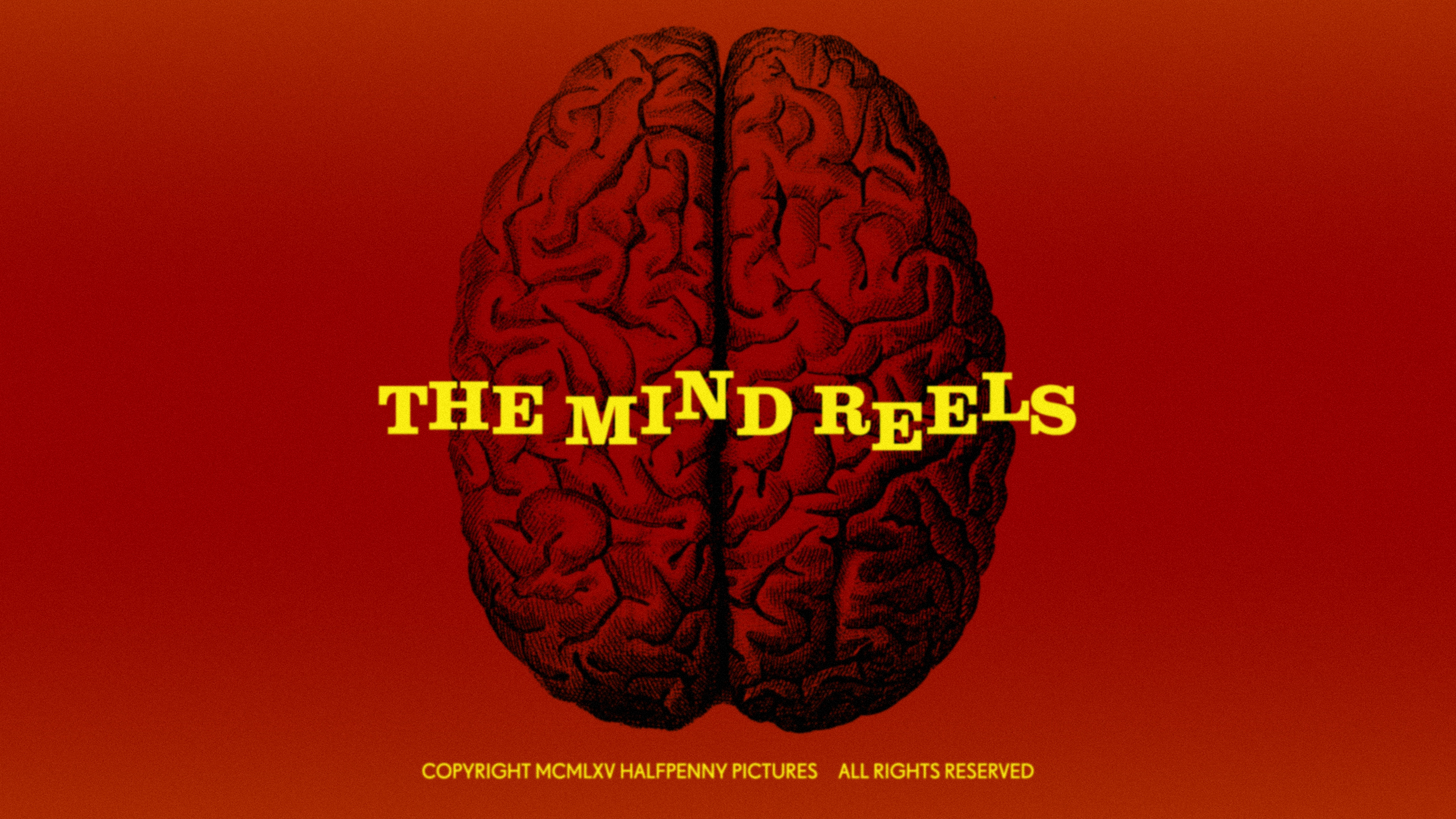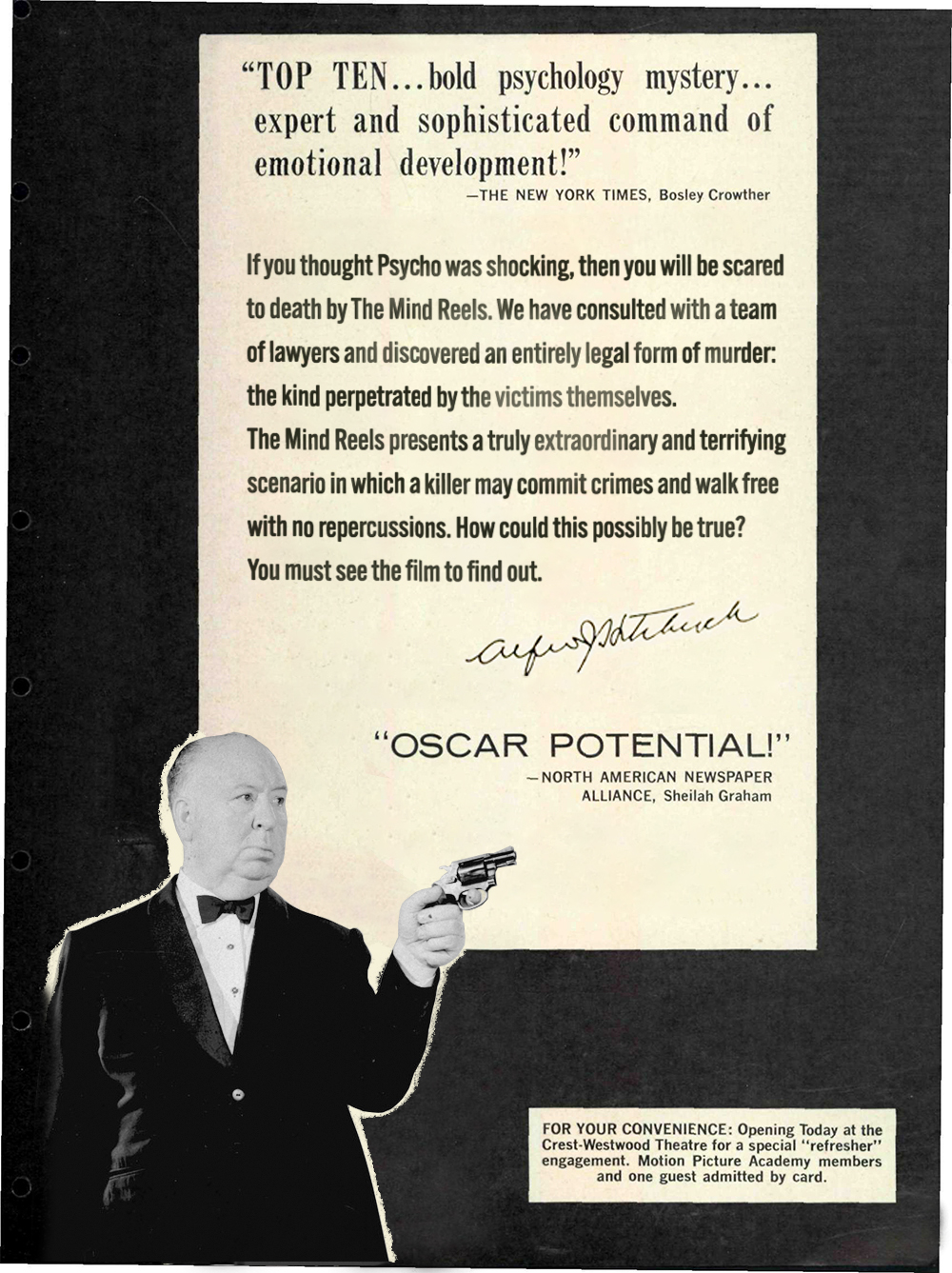
Following the lukewarm reception to his film Marnie in 1964 and with his health beginning to fail, Alfred Hitchcock returned to London to take a year off from filmmaking. However, he soon grew restless and began working on a script in secret, corresponding with his longtime collaborator John Michael Hayes by mail and telephone. Hitchcock was frustrated with Universal Pictures, who were forcing him to make two more films following The Birds and Marnie, much to his chagrin. Thus, Hitchcock sought out Halfpenny Pictures and offered Francis Amberton a deal: Hitchcock would make his new film – titled The Mind Reels (1965) – under Halfpenny on the condition that he be credited under the pseudonym “Joseph Leyton.” Amberton agreed, but when it came time to release The Mind Reels, he realized he would be a fool not to cash in on Hitchcock’s name, and so he broke his agreement. This landed Hitchcock in hot water with Universal and infuriated him to no end. He vowed to never work for Halfpenny Pictures again.
The Mind Reels tells the story of a hypnotist-turned-murderer who discovers that, through hypnosis, he is able to induce his victims to commit suicide at a later date, thereby removing all evidence of his involvement in their deaths. The film ends on a dark note when the murderer is captured and put on trial, only for the judge to rule that it would be legally impossible to charge him for deaths that were self-inflicted. The marketing materials for The Mind Reels played up this “legal technicality,” yet no actual legal basis for this ruling was ever discovered. The film also reunited Hitchcock with Saul Bass, who designed the opening titles and poster artwork.
